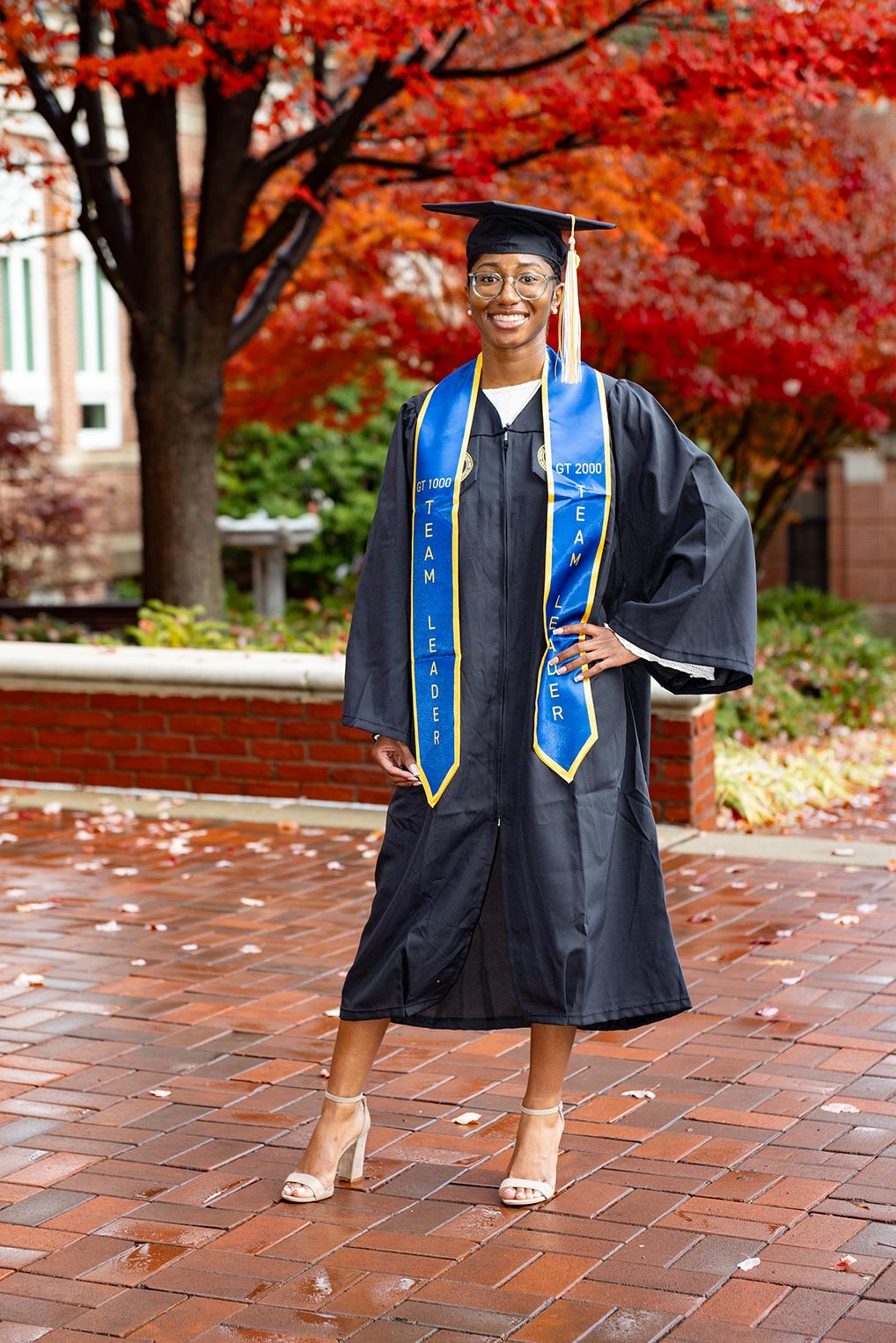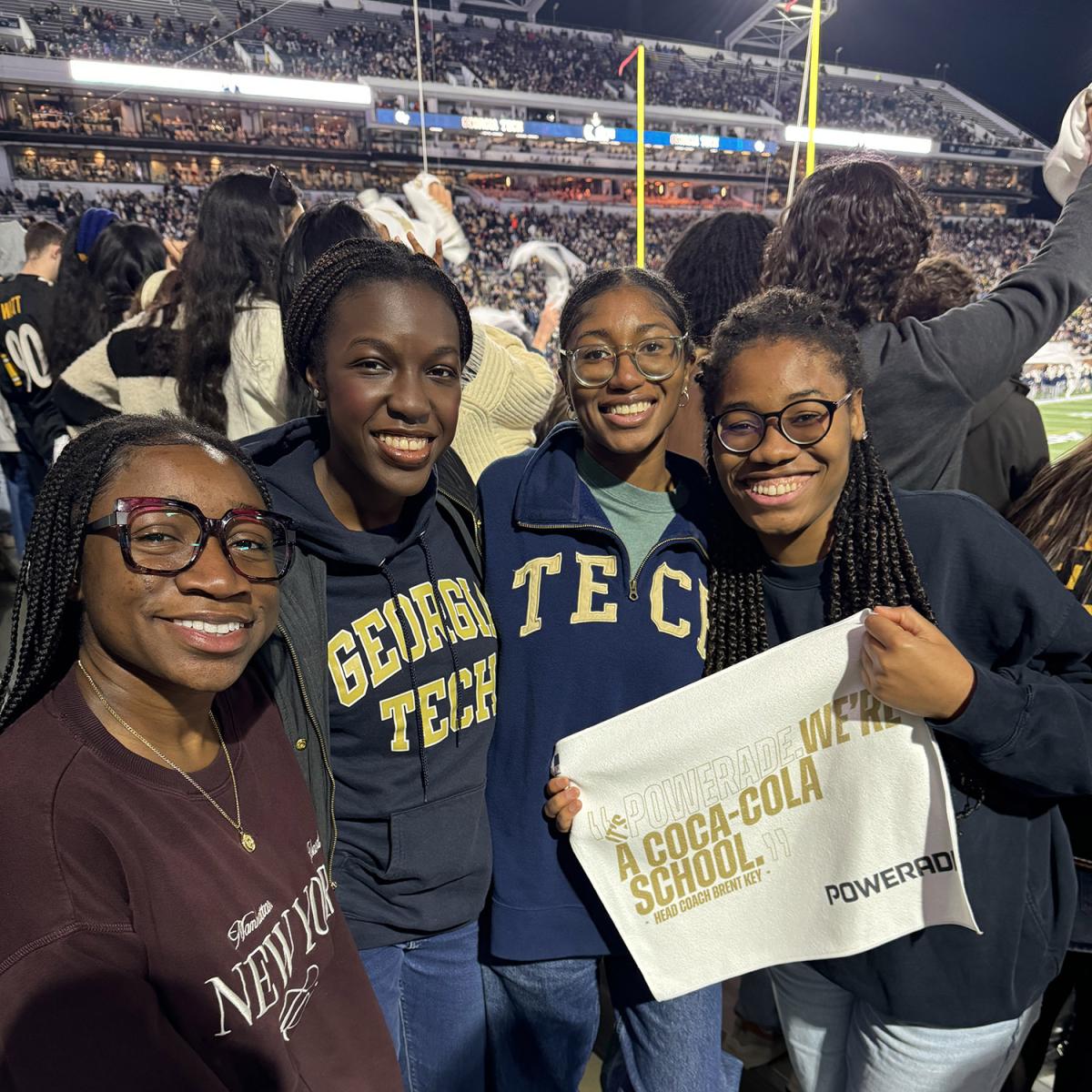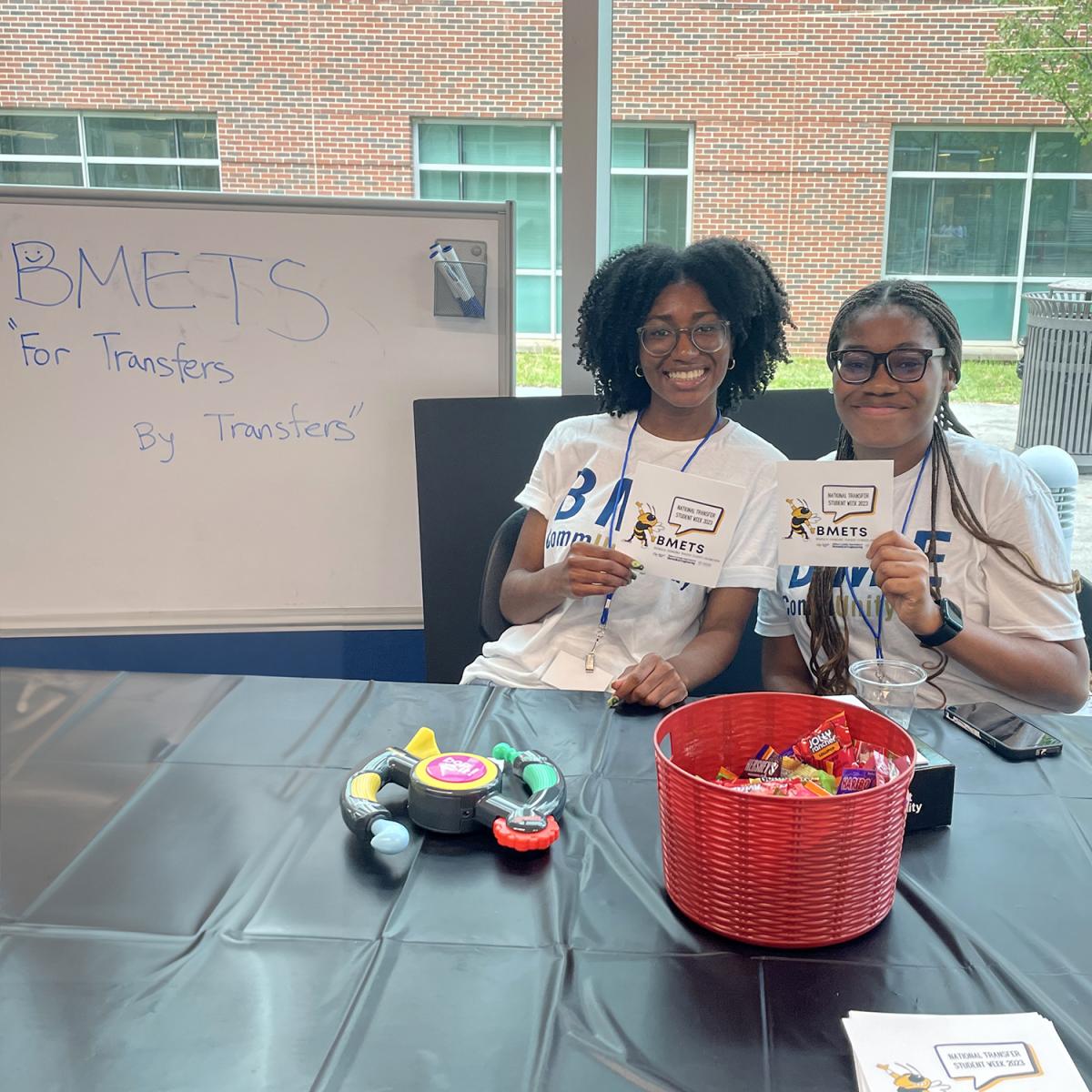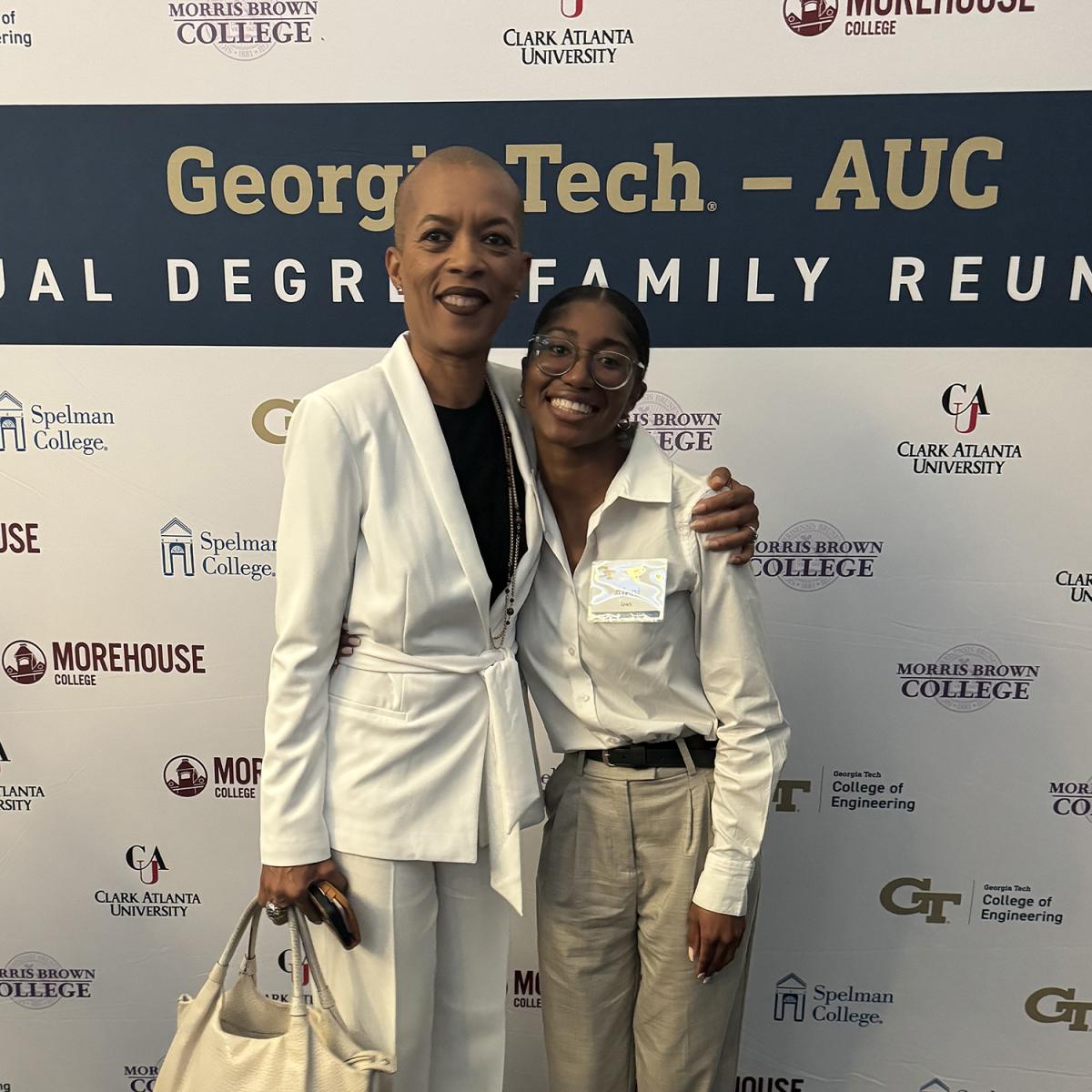The first-generation biomedical engineering graduate is finishing a pandemic-altered journey that ended up showing her just how resilient and focused she could be.
When Afeni Laws crosses the McCamish stage at Commencement, she’ll finish a story that covered six years, three universities, and two degrees. And she’ll start writing a new chapter in hospital operating rooms.
Laws’ path began at Stony Brook University in New York, where she initially pursued a biomedical engineering degree.
The pandemic, however, upended her plans. With campuses shutting down and the uncertainty of the time, Laws returned to Georgia to be closer to her family in Peachtree Corners. This led her to Clark Atlanta University, where she discovered the Dual-Degree Engineering Program with Georgia Tech. The partnership means she could continue her studies in biomedical engineering and also earn a biology degree.
“It wasn’t an easy decision,” Laws said. “I knew it meant more work, but it also meant more opportunity — scholarships, internships, and a chance to experience two incredible institutions. I met so many great people, and I've landed so many opportunities through my relationship with Dual Degree.”
Laws is the first in her family to go to college. And in addition to the work of finishing her engineering degree, she also balanced 32-hour workweeks at Trader Joe’s to support her family. That often left little room for anything else.
“My first semester at Tech was incredibly challenging,” she said. “I struggled balancing work and school, but over time I built a support system and began to lean on them. That made all the difference.”
It also sparked a drive to create community, which became a defining element of her time at Georgia Tech.
As a transfer student, Laws understood the unique challenges faced by those who join Tech later in their academic careers. She became a mentor and advocate for other transfer students, sharing her experiences and working to improve resources to make their transitions smoother.

Don’t stop believing in yourself, and don’t be afraid to ask for help. Build a support system. You’re not alone. [Georgia Tech is] a tough environment, but it pushes you to grow in ways you didn’t think possible.
AFENI LAWS
Laws also became a team leader in GT1000 and GT2000 courses and has been serving as president of the Biomedical Engineering Transfer Students student organization.
“I wanted to make sure others felt supported,” she said.
Laws will transition in the new year to a full-time role with Boston Scientific’s Electrophysiology Division. And, as it turns out, she’ll still be working to help support others. Starting next year, she’ll work as an EP mapping specialist, assisting surgeons in treating arrhythmias using cutting-edge catheter technology.
“It’s a hands-on role in the operating room where I’ll guide cardiologists during procedures,” she explained. “It’s rewarding and high-pressure, but I’m ready for it.”



She also hopes her college journey — despite more twists and turns than she expected — can inspire her sisters and other Black women and girls to consider opportunities in STEM fields.
“Knowing that I'd be the first in the family was really motivating, because I wanted to set the stage for my younger sisters and let them know that they can do it,” she said. “I want to show little Black girls that they can be engineers too. It’s about breaking barriers and creating possibilities.”
Reflecting on her time at Georgia Tech, Afeni said the experience was transformative, especially when it can to career development and networking opportunities.
“Tech shaped me both professionally and personally,” she said. “I’ve grown so much — not just as a student, but as a person. The resources here are unmatched. It’s hard not to succeed when you take advantage of everything Tech offers.”
(text and background only visible when logged in)
Related Content

From Team USA to Georgia Tech: Sierra Venetta Finds Success On and Off the Ice
The graduating biomedical engineering student found her elite figure skating career was excellent preparation for the rigors of college and working in a research lab.